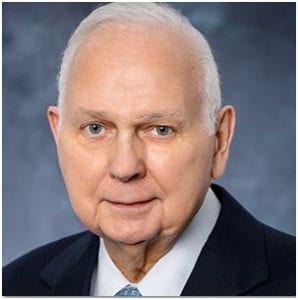By: Carter Wyckoff

Radio Ink
July 20, 2018
Along with David Kurtz and Marlin Taylor, Jerry Lee launched WBEB back on May 13, 1963 (the calls were WDVR at the time) for $28,500. On Thursday, Entercom purchased the station for $57.5 million. While he hasn’t been involved in the station for the past two-and-a-half years, Jerry Lee’s name has always been associated with WBEB in Philadelphia. And, many times, the radio industry has referred to Lee as the best independent operator in the history of radio. WBEB, the only station Lee owned (other than dabbling with an AM for a short while), has been a consistent winner for decades against radio’s biggest companies. And those companies eventually built clusters in Philadelphia and WBEB still won.
David Kurtz passed away in 2005 and Lee bought out Kurtz’ half of WBEB. He wound up overpaying for the station at the time and when money he owed came due, several years ago, Sam Zell and other investors took control of the station. Lee was moved to Chairman of the board and Jim Loftus was made the President and CEO of the station.
We spoke to Lee on Thursday about how WBEB remained the king of radio in Philadelphia.
Radio Ink: For the longest time WBEB battled clusters and won. How?
Jerry: The station was always run based on rigorous research. We researched out everything we did. For 37 years we had Bill Moyes as our statistical researcher who did a phenomenal job for us. We were always willing to spend when others were not. For example, in 1968 we were the first radio station in the country to use television to advertise. When deregulation came in we decided it was an opportunity to take hold of the market and we increased our advertising budget enormously. We constantly figured out a way to advance and stack the odds in our favor. We used research for everything. A little history: by 1966, the first year Arbitron was in existence, it showed us having the largest AQH for any station in the country, bigger than New York, Chicago, or LA. Two years later in ’68, we had the largest revenue of any FM in the country. We were three times as large as the nearest FM, in Chicago, New York, or LA. We have always been ahead of our time.
Radio Ink: How much did it cost back then to put it on the air?
Jerry: $28,500
Radio Ink: You have made a few bucks over the years?
Jerry: Yes and I have given away millions of dollars. I’m in the later phase of my life but I am not finished. I am going to spend the rest of my life carrying the torch for engaging commercials which is the future of radio, because if the commercial works, the advertiser spends more money. We have to get to the point where we are cutting back on our commercial loads and the way to do that is by increasing the revenue through engaging commercials.
Radio Ink: Do you believe selling the station was the right thing to do?
Jerry: I’m really happy that Entercom acquired it because they are good operators. They are a first-class operation and I’m delighted the station is in good hands.
Radio Ink: What do you want to say about the people that you’ve worked with over the years at WBEB?
Jerry: We have had phenomenal people. Blaze Howard, Jim Loftus, the current president and GM is great, just to name a couple. I was very fortunate over the years to have great people working with me who have put up with my wild ideas. It was always an adventure for people.
Radio Ink: Do you think we have seen the last of the single operators who can succeed like you did in a city that big?
Jerry: You could not survive as a single station if you were the fifth through eighth radio station in the market. Being the dominant station all these years has given us an unfair advantage over everybody else. You will never see, in my estimation, another single station operation in a major market.
Radio Ink: What do you miss the most about being the day-to-day guy?
Jerry: I don’t miss it because I was never the day-to-day guy from the beginning of the station, basically. As soon as I could afford to hire a GM, I did. That GM ran the station. My job was to come up with ideas. That has been my job my whole life. I have not worked day-to-day in the stations since 1964 or ’65. I have this passion of engaging commercials and my goal is to get every advertiser in the country on the radio to be using commercials that make the client money. I had the system and … logic to do that. For me nothing has changed. Obviously I don’t have the title of Chairmen of the Board of WBEB anymore, but things are not changing. I will put more energy into developing engaging commercials.